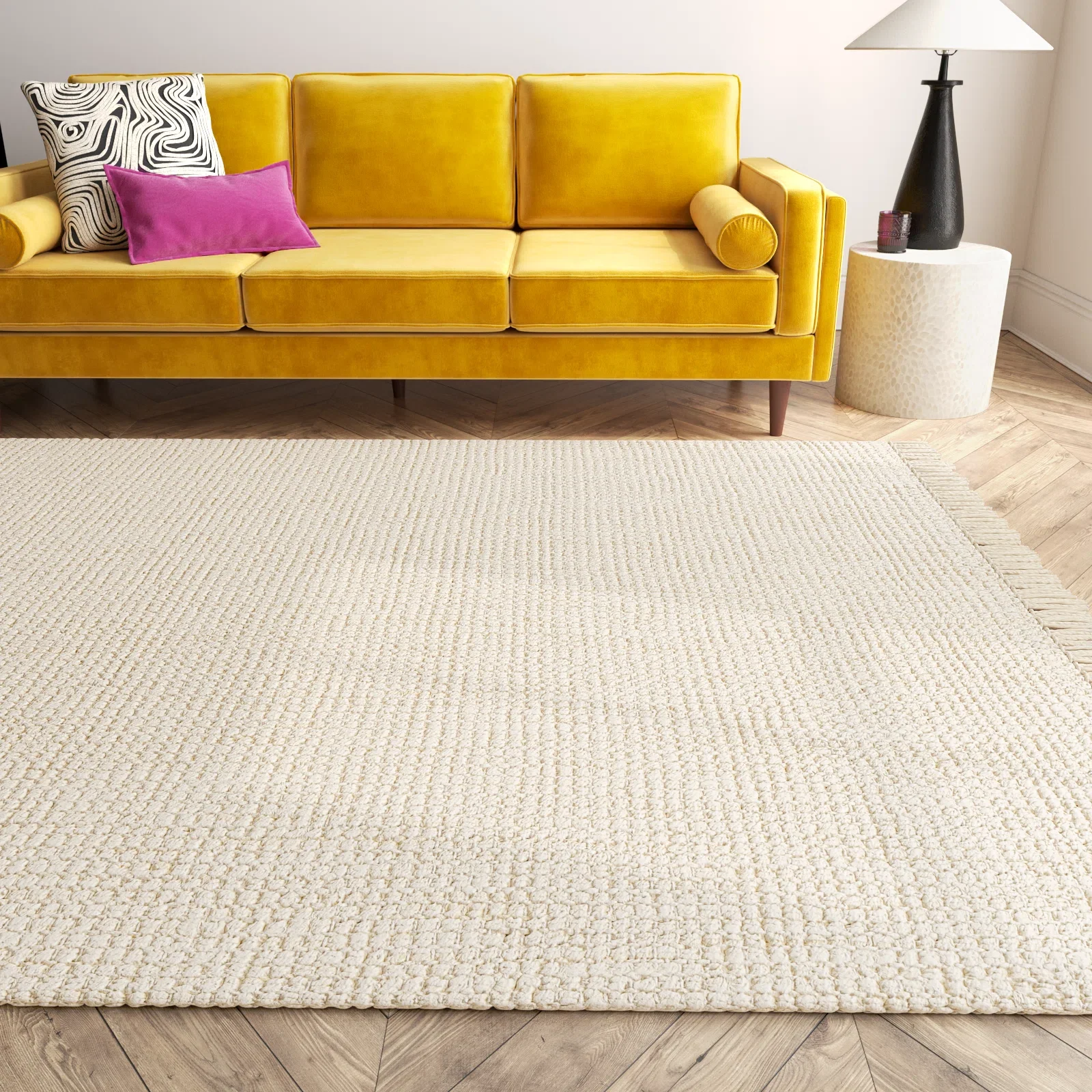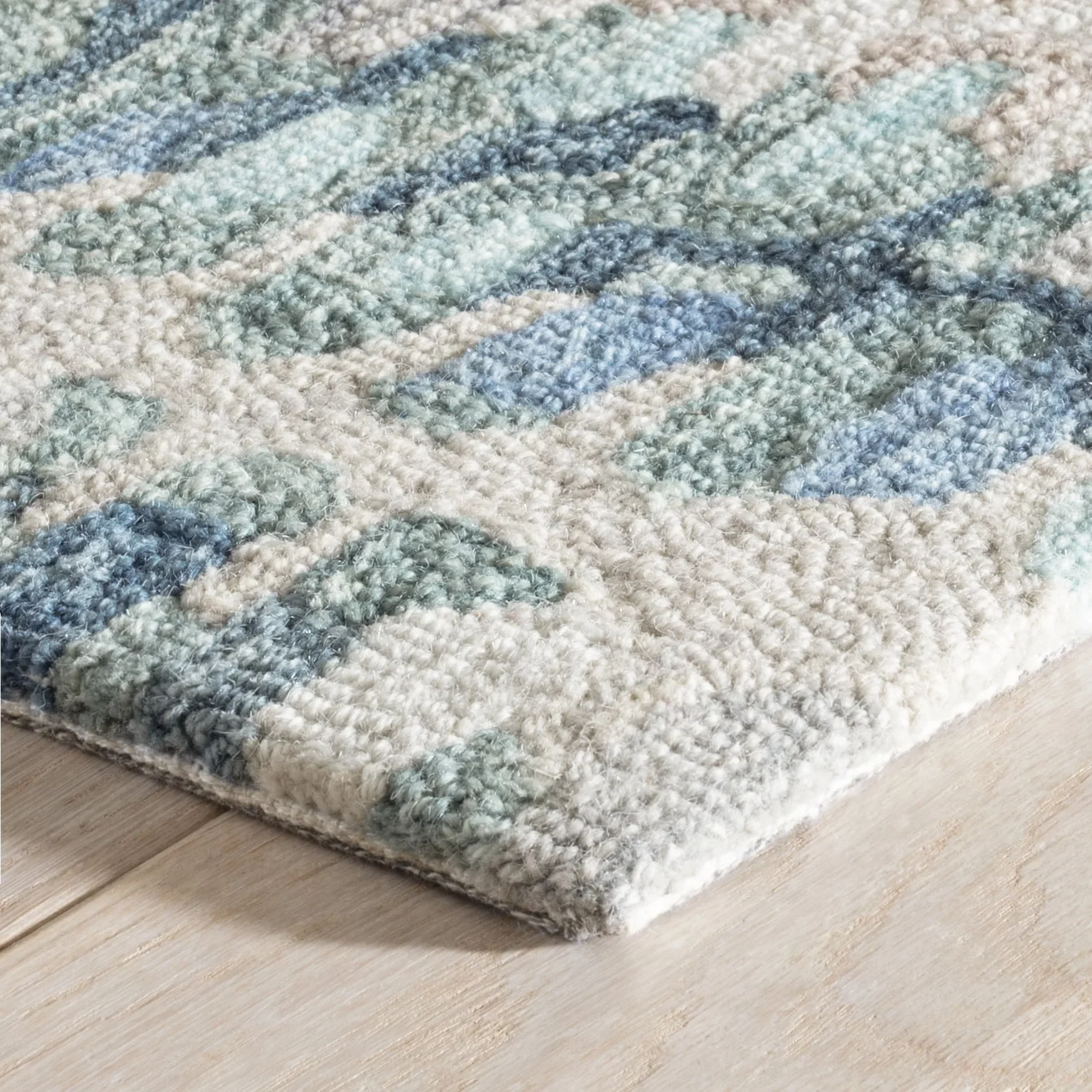How to Choose the Right Rug for Your Space
When designing a space, I always pay close attention to the small details that make a big difference — rugs are one of them. The right rug can visually tie a room together, add warmth, soften acoustics, and even improve how the space functions. But in high-traffic areas like entryways, kitchens, and family rooms, choosing the right rug becomes even more important.
In these busy spaces, your rug needs to do more than just look beautiful — it needs to be durable, practical, and easy to maintain. From color and pile height to materials and texture, here’s how I approach selecting a rug that can handle daily wear without sacrificing style.
1. Choose a Color That Works With Your Lifestyle
Color is the first thing people notice — and one of the biggest factors in how well a rug wears over time.
For high-traffic areas, I recommend:
Warm tones (beiges, browns, terracotta, olive)
Patterns (geometrics, vintage washes, subtle prints)
Why? Patterns and warm tones are forgiving. They disguise everyday dust, shoes, pet paws, and life moments — helping your rug look newer for longer.
If you love the clean minimal look of a light-colored rug, go for:
Machine-washable rugs, or
Indoor/outdoor materials you can hose off
This keeps beauty without the constant stress of upkeep.
2. Consider the Pile Height
Pile height simply refers to how tall the rug fibers are — and it directly affects how the rug looks, feels, and ages in your space.
Low Pile Rugs
Low pile rugs are generally the best option for high-traffic areas like entryways, family rooms, hallways, and dining rooms.
They’re tightly woven and have shorter fibers, which means:
They don’t trap dirt as easily
They’re much easier to vacuum and spot-clean
They maintain their shape even with constant foot traffic
Chairs and furniture move easily across them
If you’ve ever noticed a rug flatten or look “crushed” over time, that usually happens with higher pile rugs — low pile avoids this issue. It’s the most practical, long-lasting choice for everyday spaces.
Medium Pile Rugs
Medium pile rugs add a bit more softness and comfort underfoot while still being manageable when it comes to cleaning.
They work well for living rooms or more relaxed sitting areas — spaces where you want some coziness, but still need something durable.
They strike a nice balance, but it’s good to be aware that they may require more regular vacuuming to stay fresh.
High Pile & Plush Rugs
High pile rugs — the soft, luxurious, almost cloud-like ones — are beautiful, but they do require more care.
They’re best reserved for low-traffic, intimate areas like bedrooms or cozy reading corners.
Because of their height:
Dirt gets buried more easily
Footprints and vacuum lines are more visible
They can mat or flatten in high-use areas
If you love a plush rug, place it where you relax, not where everyone is constantly passing through.
3. Pick the Right Material
Your rug’s material determines how it performs over time — especially with pets, children, or frequent use.
Natural Fibers
Wool
Durable and naturally stain-resistant
Holds shape well
Soft underfoot
A long-term investment
Flatweave (Wool or Cotton)
No pile → less dirt trapped
Easy to shake out and vacuum
Perfect for kitchens, hallways, and casual living spaces
Budget-Friendly Synthetics
Nylon / Polypropylene
Durable
Fade-resistant
Very easy to clean
Ideal for busy households or rental spaces
Synthetics have come a long way — they can mimic the look of wool beautifully while being lower-maintenance.
4. Scale Matters
A rug that’s too small makes the room feel disconnected.
A rug that fits correctly anchors the space.
Quick room sizing rules:
Living Room: Front legs of all major furniture on the rug
Dining Room: At least 24" of extra rug on all sides of the table
Bedroom: At minimum, rug should extend at least 18" past the sides of the bed
Final Thoughts
A well-chosen rug is more than decor — it’s a foundational layer that sets the tone for the room. In high-traffic areas, look for:
Warm tones + patterns
Low pile
Durable materials you can maintain with ease
There is always a balance between beauty and practicality — and you deserve both.
Your floors (and your future self) will thank you. 🤎














